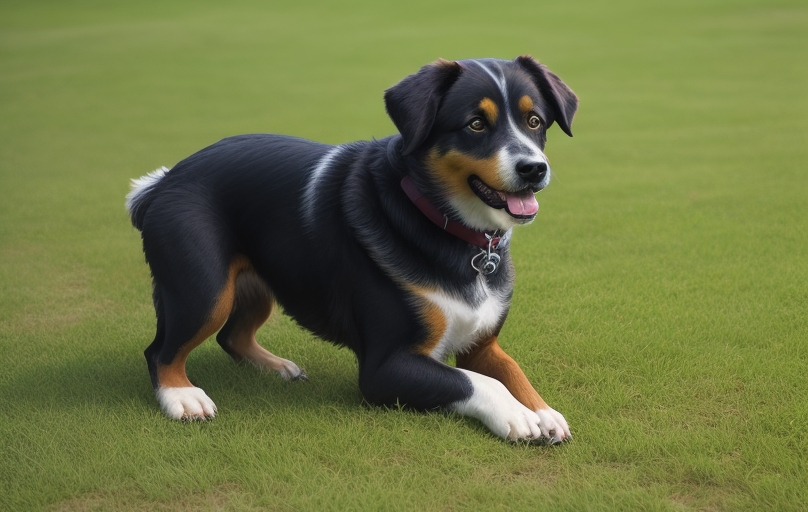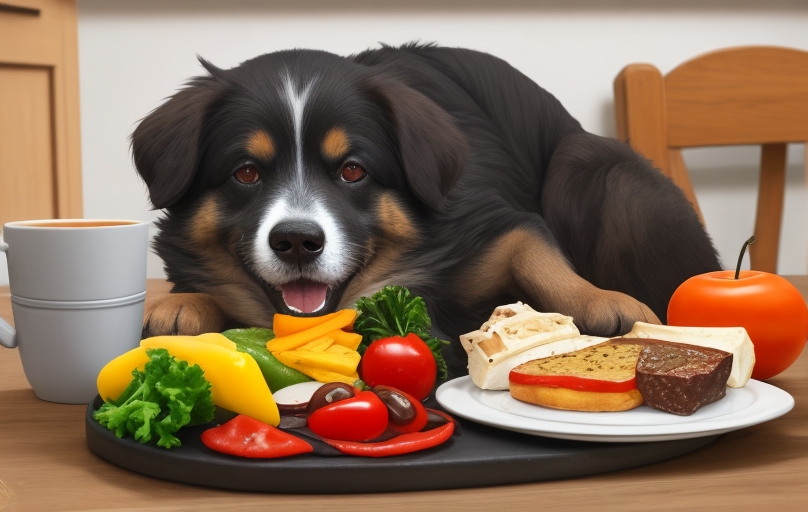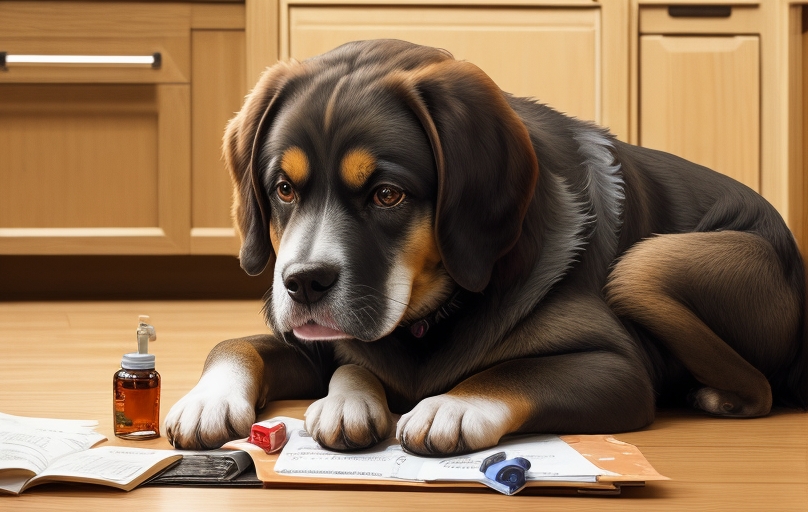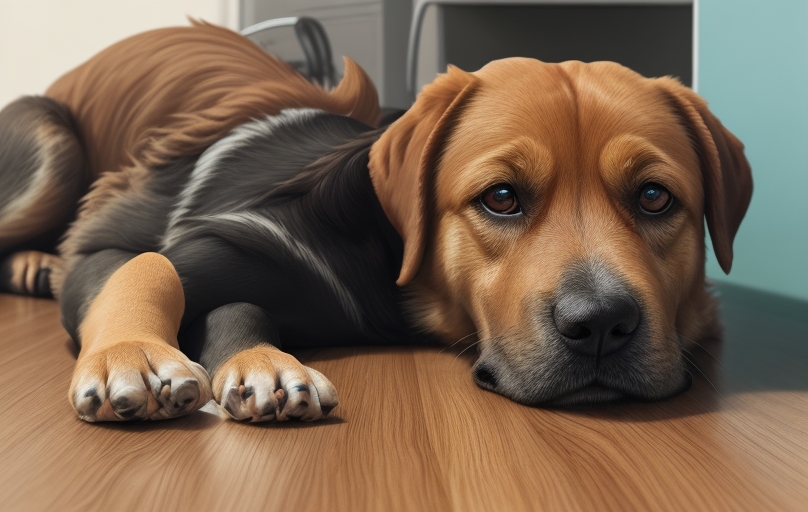Managing Dog Diarrhea After Antibiotics treatment is a common concern for pet owners. Antibiotics are crucial in treating bacterial infections in dogs but can sometimes lead to side effects such as diarrhea. It is essential to manage this condition promptly to ensure your furry friend’s well-being. In this article, we will explore the causes of diarrhea after antibiotics, preventive measures, and effective strategies for managing and alleviating the symptoms.
Scientific Research Insights
“The Impact of Antibiotic Therapy on Canine Gut Microbiota Composition and Diarrheal Incidence”
This study investigated the effects of commonly prescribed antibiotics on the composition of the gut microbiota in dogs. The research utilized high-throughput sequencing techniques to analyze fecal samples before, during, and after antibiotic treatment. The findings shed light on the link between alterations in gut microbiota and the incidence of diarrhea in canines following antibiotic therapy.
Title: “Probiotic Supplementation to Mitigate Antibiotic-Induced Dysbiosis in Dogs”
Focused on assessing the efficacy of probiotic supplementation in preventing antibiotic-induced dysbiosis in dogs, this study involved a randomized controlled trial. The researchers measured changes in microbial diversity, fecal consistency, and overall gastrointestinal health in dogs receiving both antibiotics and probiotics compared to those receiving antibiotics alone. The results provided valuable insights into the potential benefits of probiotics in maintaining a healthy gut flora during antibiotic treatment.
Title: “Long-Term Effects of Antibiotic Exposure on Gastrointestinal Health in Dogs”
This longitudinal study explored the lasting impact of antibiotic exposure on the gastrointestinal health of dogs. By monitoring a cohort of dogs over an extended period, the research aimed to identify any persistent changes in gut microbiota, bowel habits, and overall digestive health following antibiotic treatment. The results of this study contribute to our understanding of the potential long-term consequences of antibiotic use in canine medicine.
Causes of Dog Diarrhea After Antibiotics:

Disruption of Gut Microbiota:
Antibiotics can disrupt the balance of beneficial bacteria in the dog’s digestive system. This imbalance may lead to an overgrowth of harmful bacteria, causing diarrhea.
Antibiotic Sensitivity:
Some dogs may be sensitive to certain antibiotics, and their digestive systems may react negatively, resulting in diarrhea.
Duration and Dosage:
The length of antibiotic treatment and the dosage administered can impact the likelihood of diarrhea. Prolonged or high-dose antibiotic therapy is more likely to disturb the gut microbiota.
Preventive Measures:
Probiotics:
Administering probiotics alongside antibiotics can help maintain a healthy balance of gut bacteria. Probiotics provide beneficial bacteria that support digestion and reduce the risk of diarrhea.
High-Quality Diet:

Feed your dog a high-quality, easily digestible diet during and after antibiotic treatment. Avoid sudden dietary changes, as they can contribute to digestive upset.
Hydration:
Ensure your dog has access to clean, fresh water at all times. Diarrhea can lead to dehydration, so it’s crucial to keep your pet well-hydrated.
Managing Dog Diarrhea After Antibiotics:

1. Gradual Diet Transition:
Managing Dog Diarrhea After Antibiotics. If your dog experiences diarrhea, transition back to its regular diet gradually. Start with small, bland meals and gradually reintroduce the regular food over a few days.
2. Fiber-Rich Foods:
Introduce fiber-rich foods such as plain canned pumpkin (not pumpkin pie filling) to help firm up stools. Consult your veterinarian for appropriate serving sizes.
3. Anti-Diarrheal Medications:
Your veterinarian may recommend anti-diarrheal medications for short-term relief. However, do not administer any medication without consulting your vet first.
4. Regular Veterinary Check-ups:
If diarrhea persists or worsens, consult your veterinarian promptly. Persistent diarrhea can lead to serious health issues, and a professional assessment is crucial.
5. Monitoring for Allergic Reactions:

Look for signs of allergies, such as itching, swelling, or difficulty breathing. Report any unusual symptoms to your vet immediately.
When to Seek Veterinary Assistance
While some cases can be managed at home, it’s vital to recognize when professional advice is necessary. Severe diarrhea, dehydration, or persistent symptoms should prompt a visit to the vet.
Home Remedies for Managing Dog Diarrhea
Introducing a bland diet, incorporating probiotics, and ensuring proper hydration are essential home remedies. These measures aid in restoring balance to your dog’s digestive system.
Common Mistakes to Avoid
Overlooking signs of discomfort and making abrupt dietary changes are common mistakes pet owners make. Understanding these pitfalls can aid in better care for your furry companion.
Read Also: How To Manage Dog Diarrhea After Antibiotics
Conclusion:
Managing Dog Diarrhea After Antibiotics. While antibiotics are essential for treating bacterial infections in dogs, they can sometimes lead to diarrhea. By taking preventive measures, managing symptoms effectively, and seeking professional advice when needed, you can help your furry companion recover smoothly from the side effects of antibiotic treatment. Always consult your veterinarian for personalized guidance based on your dog’s health and specific circumstances.
FAQs
1. Why does my dog develop diarrhea after taking antibiotics?
Antibiotics can disrupt the balance of bacteria in the dog’s gut, leading to an overgrowth of harmful bacteria. This imbalance can result in diarrhea as the digestive system is temporarily compromised.
2. Can I give my dog probiotics while they are on antibiotics?
Yes, administering probiotics alongside antibiotics is advisable. Probiotics help maintain a healthy balance of gut bacteria, reducing the risk of diarrhea by supporting digestion and preventing an overgrowth of harmful microbes.
3. How can I prevent diarrhea in my dog during antibiotic treatment?
To prevent diarrhea, consider feeding your dog a high-quality, easily digestible diet during and after antibiotic treatment. Additionally, provide probiotics, ensure proper hydration, and avoid sudden dietary changes.
4. What should I do if my dog develops diarrhea after antibiotics?
If your dog experiences diarrhea, gradually transition back to its regular diet, introduce fiber-rich foods like plain canned pumpkin, and monitor hydration. If symptoms persist, consult your veterinarian for guidance on potential anti-diarrheal medications.
